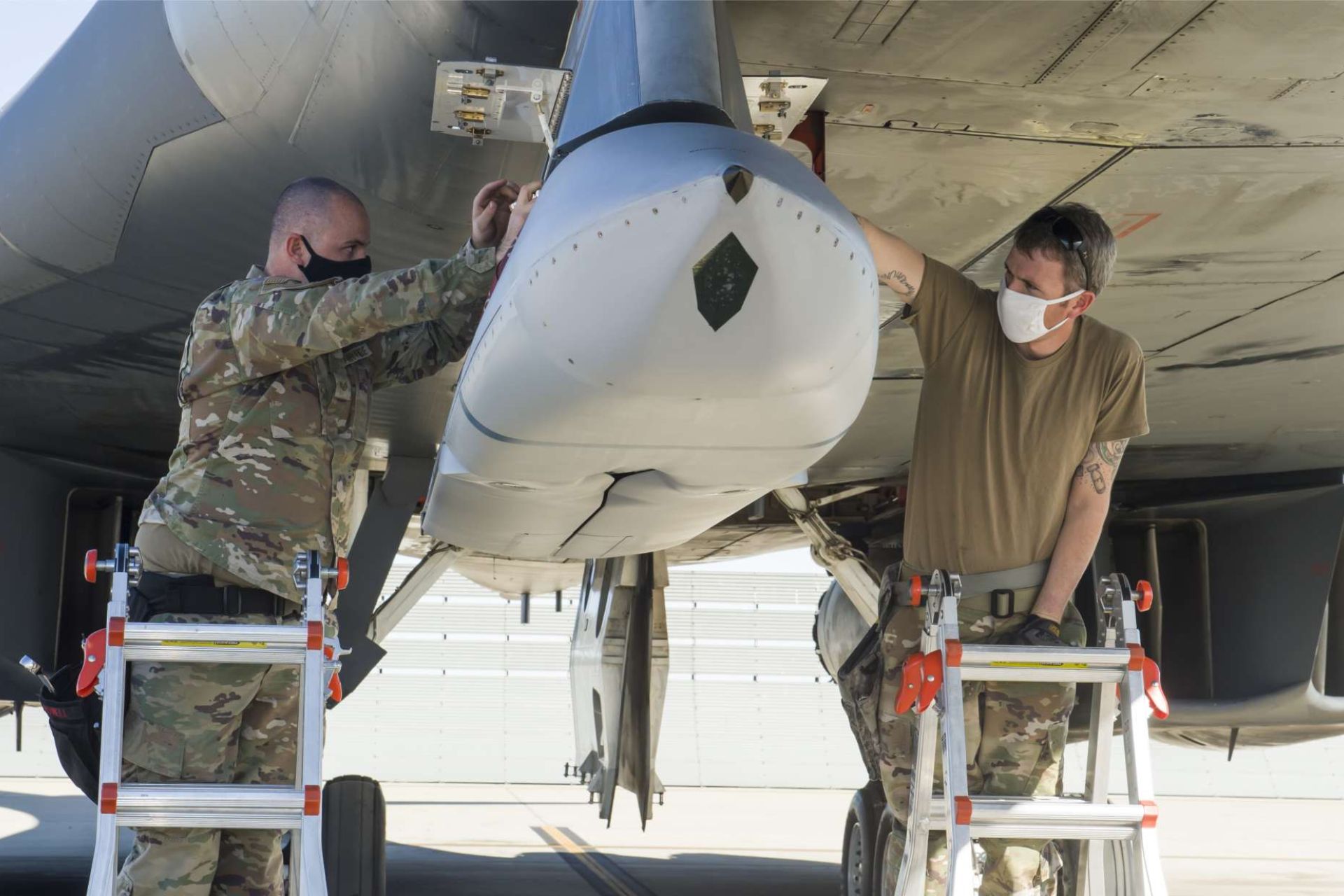Breaking News
US Allows Ukraine to Use Long-Range Missiles to Target Russian Territory After Iranian Missiles Delivery.
Citing information published by "People's World" on September 11, 2024, Moscow claimed that the U.S. has given the green light for Ukraine to use long-range missiles against Russian targets. This development comes as part of a broader international effort to support Ukraine, with several European countries also backing Kyiv’s use of long-range weapons to strike Russian targets.
Follow Army Recognition on Google News at this link

A weapon Loader crew uploads a Joint Air-to-Surface Standoff Missile to an external pylon on a B-1B Lancer at Edwards Air Force Base. (Picture source: U.S. DoD)
On September 3, 2024, "Reuters" announced that the U.S. is nearly finalizing an agreement to supply Ukraine with Joint Air-to-Surface Standoff Missiles (JASSM), which can reach deep into Russian territory. These missiles are expected to be delivered to Ukraine as part of a weapons package by autumn. The move is seen as a significant escalation in the conflict, as Ukraine will now be able to strike further into Russian territory than ever before.
The Joint Air-to-Surface Standoff Missile (JASSM) is a long-range, precision-guided cruise missile developed by Lockheed Martin for the U.S. military. It is designed to be launched from aircraft and strike high-value, well-defended targets from a safe distance, reducing the risk to pilots. The missile is equipped with advanced stealth technology to evade enemy radar and has a range of up to 370 km (230 miles) in its basic version, with an extended-range variant (JASSM-ER) reaching over 900 km (560 miles). JASSM is used primarily by the U.S. Air Force and Navy and has been exported to several allied nations.
European nations have also signaled their approval for Ukraine to use their donated missile systems in strikes targeting Russian military assets. Several European countries, including the UK, France, and Germany, have provided Ukraine with long-range missile systems such as the British-supplied Storm Shadow and French SCALP-EG cruise missiles. These missiles, with ranges up to 300 kilometers, have already played a crucial role in Ukrainian strikes against Russian positions in occupied territories.
However, until now, the use of European-donated long-range missiles had been limited to Ukrainian targets within its own borders or occupied territories. According to *People’s World*, recent developments indicate a shift in policy, with Western countries softening their stance on allowing Ukraine to strike military targets deep inside Russia. The UK, in particular, has reportedly supported Ukraine’s right to defend itself, even if that means conducting offensive operations within Russian territory, as long as those strikes are aimed at military infrastructure.
This shift follows Russia's own aggressive actions, including Iran’s delivery of Fath 360 ballistic missiles to Moscow, which has heightened the sense of urgency among Ukraine's Western allies. The Iranian-Russian missile deal, cited by *People's World*, has been seen as a provocative step, further fueling the arms race in the region and prompting NATO allies to reevaluate their restrictions on Ukraine’s use of donated long-range weapons.
With the U.S. poised to provide the JASSM missiles and European nations indicating their support for Ukrainian strikes on Russian soil, Ukraine is now better equipped to launch offensive operations that reach far beyond the frontlines. This new phase in the war has raised concerns about a potential escalation in hostilities, as long-range strikes from both sides could destabilize not only Ukraine and Russia but also the broader region. The growing use of advanced Western missile systems, alongside Ukraine’s requests for more offensive capabilities, signals a new chapter in the conflict, one that could significantly shift the balance of power on the battlefield.
As the conflict intensifies i Ukraine, the international community watches closely, with fears that this increased missile activity could lead to unpredictable consequences, potentially drawing other nations deeper into the conflict. Western nations continue to walk a fine line between supporting Ukraine's defense and preventing a further escalation that could lead to direct confrontation with Russia


























